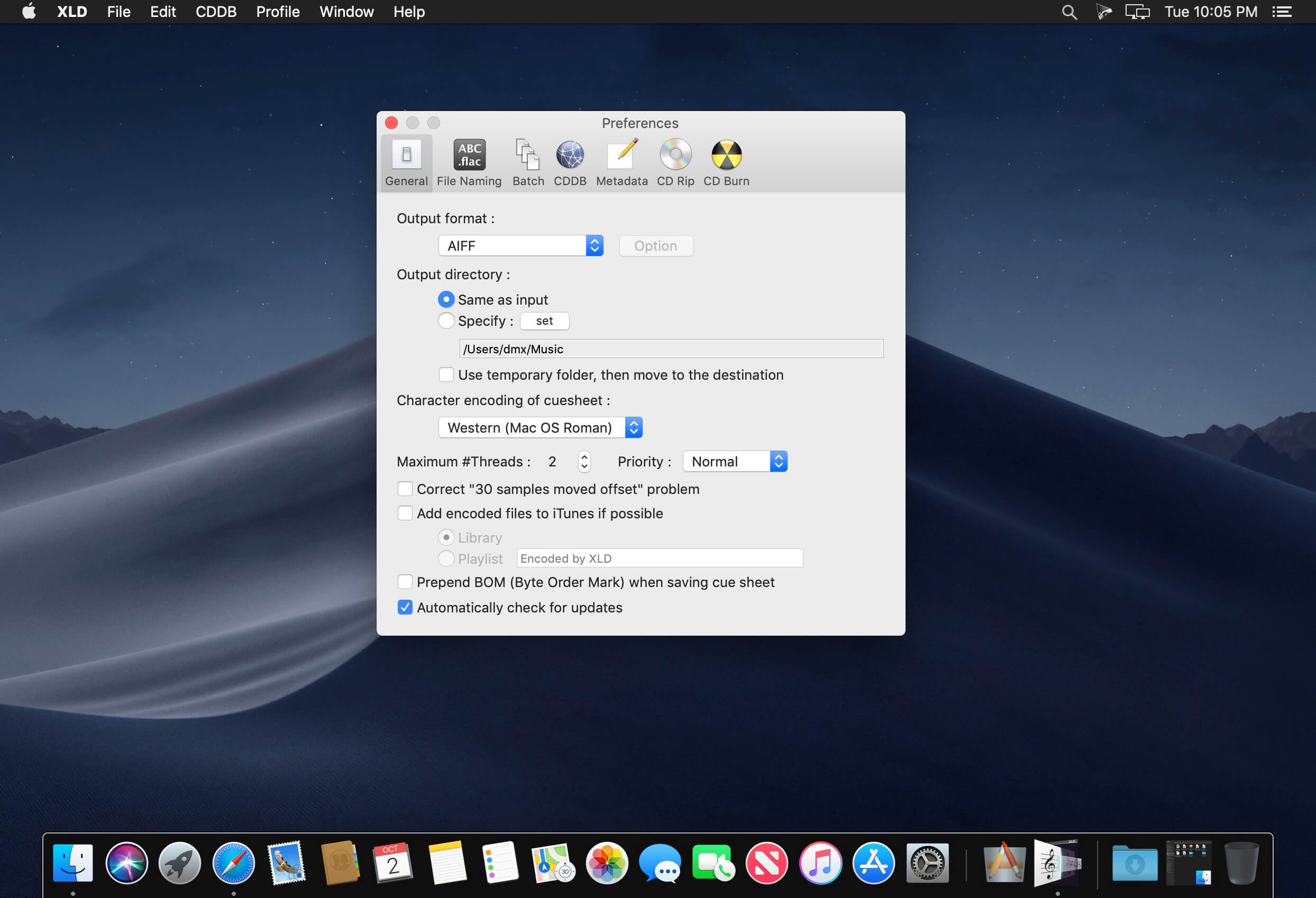

Again, if you experience an error while ripping a CD, AccurateRip will let you know and actually tell you that your rips aren't matching up with others.Īnother benefit of XLD and dBpowerAMP is that they can actually encode more track than one if you have a multi-core/multi-threaded CPU. It is just another way to check your rips. Those programs will rip your CD, compare it to the AccurateRip database, and tell you if your ripped matched the others. It is an online database that contains results from people ripping CDs. Second, those three programs I previously mentioned work with AccurateRip. You just never know when iTunes comes across an error while ripping a CD. iTunes can somewhat protect against this but even then it isn't a complete failsafe. Whenever you rip a CD, the optical drive you are using can jitter when reading data. EAC, dBpowerAMP, and XLD will actually tell you when they come across an error and they can go back and re-rip any problematic tracks with a high level of "error correction." The error correction that iTunes uses is nothing more than a low level jitter correction setup. First, if iTunes comes across an error while ripping (which can happen quite a bit), it will just plow through the error and that can result in an audible noise occurring in the middle of a song. ITunes is not a secure CD ripper for serval reasons. I then just import the songs into iTunes, convert them to 192kbps VBR AAC using iTunes, and sync only the AAC tracks to my iPod.
#XLD MP3 ENCODER MAC#
I continue to rip any CD I get with XLD now that I am on Mac and I still use Apple Lossless. That is what I did many years ago with dBpowerAMP and I haven't looked back. Going with Apple Lossless would mean you could import the lossless files into iTunes and convert them using that program.

Most people are content with either crappy YouTube downloads, finding stuff on upload sites, torrents, or actually buying content from the iTunes Store.Įither way, I suggest that you use a secure CD ripper (those three programs are it, do not use iTunes since it is not secure), rip your CDs to a lossless format (you can even choose Apple Lossless quite easily in dBpowerAMP and XLD, it takes some work to get that up and running in EAC), and then convert them to either mp3 or AAC so you can sync them to your iDevice. CDs just aren't selling like they used to in the U.S. A CD collection of 100 discs would probably get you $50, maybe $100 if you had some gems in there. I would still save the CDs since they aren't going to fetch you much if you sold them. If you are going to take the time to re-rip your CDs, you might as well do it right. This includes mp3, AAC, OGG Vorbis, WMA, and many others. You can then convert those lossless files to whatever lossy format you want. That way you have a bit-for-bit backup of all your CDs.
#XLD MP3 ENCODER DOWNLOAD#
Having said all of that, the absolute best thing that you can do is go out, buy an external hard drive (or a secondary internal hard drive if you have a desktop), download a secure CD ripper (dBpowerAMP or EAC on Windows and XLD on Mac), and properly rip those CDs to a lossless format. That is why I am hesitant to try iTunes On The Cloud as the whole thing would be an absolute waste of time and money if it were extremely picky.

The service would be great if it isn't but the whole thing would absolutely suck if it wasn't able to match songs in my library if they are also in the iTunes Store. My main concern is if iCloud is going to be just as picky. I can match everything (except the copyright info) with tracks in my iTunes library to the tags in the iTunes Store and iTunes will still tell me that it can't find the album art. I can already tell you that the iTunes Store is rather picky when iTunes is looking up album art. I don't know how picky iCloud is going to be with this. Well, with the iTunes On The Cloud service (which costs $25 a year), the songs must be sold in the iTunes Store and match the track tag information.


 0 kommentar(er)
0 kommentar(er)
